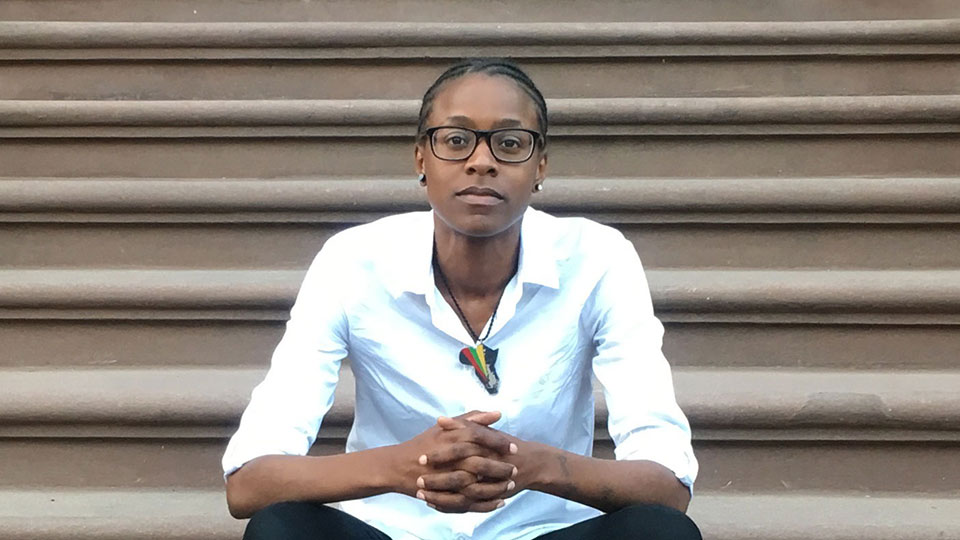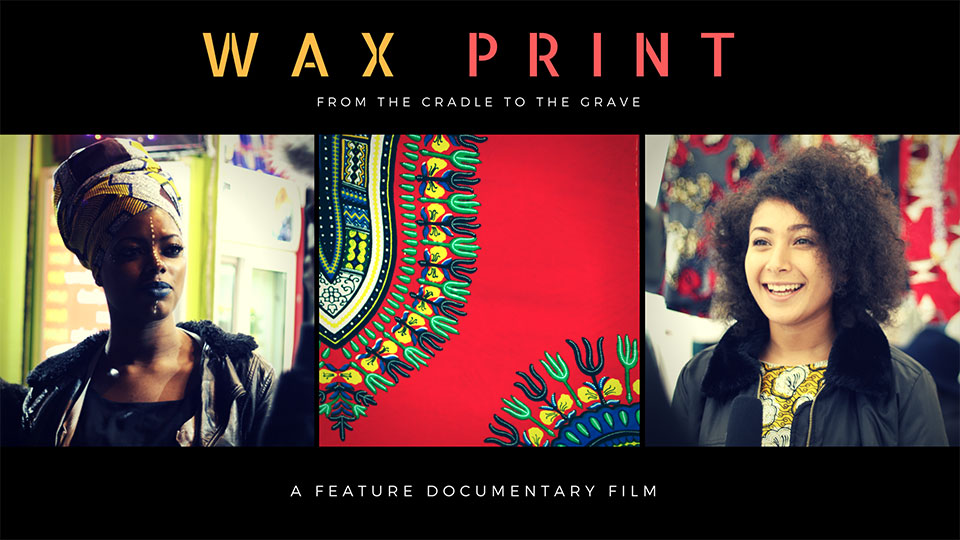Wax Print documentary unwraps history of African fabrics
An independent filmmaker is unwrapping the story of traditional African clothing in a new globetrotting documentary.
British-Nigerian fashion designer and filmmaker Aiwan Obinyan has delved into the history and symbolism of ankara – also known as Dutch wax-print fabrics – for her first feature-length documentary, Wax Print: From the Cradle to the Grave.
“From the moment we’re born, we’re wrapped in wax-print fabrics. They’re a huge part of special occasions throughout our lives, to the extent that we’re even buried in them,” said Obinyan. “I wanted to know how this came about, so I started looking into the history, and that’s when unexpected threads started coming to the surface.”
The bright colours and intricate patterns of African wax-prints have been adopted into the fashion lines of many young designers and independent clothing brands, such as Kitenge. While these aesthetically stunning garments make a clear fashion statement – especially when worn in a city like London, traditionally, African women used the fabrics as a method of communication and expression, with particular patterns gaining widely understood meanings, from the abstract (moral views) to the intimate (“I believe my husband is cheating on me”).
So far, the project has taken Obinyan and her crew to fabric mills in Manchester, the Vlisco clothing factory in the Netherlands, and the markets of Ghana.
In the documentary, Obinyan uncovers how African women used the fabrics as a method of self-expression and empowerment, as well as studying colonialism, counterfeiting and economics.
She is crowdfunding to complete the final pieces of her production now.

Obinyan told Fringe Frequency that her inspiration for the documentary started while designing her first collection for her clothing line Onomen.
“I realised that, although I’d grown up with the fabrics, I didn’t know much about where they came from, the influence behind the designs and why they were so popular,” she said.
“Back in the 60s and 70s, my grandma ran a sewing school and tailoring business in Ekpoma in Edo State, Nigeria. She’s nearly 80 now, but she was a real entrepreneur back in the day, and ended up supplying custom clothes to all the surrounding businesses.
“I showed her some of my designs when she was over visiting us a few years ago. My mum told me later she’d said, ‘I’ve been praying for God to raise up a child who will carry on my legacy’. In other words, she’s happy I’m using the fabrics.”
Production on Wax Print began in June 2016 at Afropunk Paris. Obinyan aims to premiere the finished film in June 2018.
Obinyan has a few filming dates left on her shooting schedule, which includes travelling to Ekpoma to film a reconstruction of her grandmother’s sewing school.
“Working on Wax Print has been inspiring, enlightening and challenging. I’ve met many very generous and knowledgeable people who have essentially changed my life with their warmth and openness,” she told Fringe Frequency. “I hope that Wax Print will become an important part of the archives of African and world history, and maybe future generations might watch it and learn about the power of the human mind and spirit.”
A keen creative, Obinyan studied Music Technology at Leeds College of Music and Leeds Beckett University, writing songs and learning sound engineering. She continues to use those skills, but her shift into film started out by making short films and music video with friends.
Keep up with the Wax Print documentary on the official website, and to donate to the project visit its Kickstarter page.
Image: courtesy of Aiwan Obinyan

